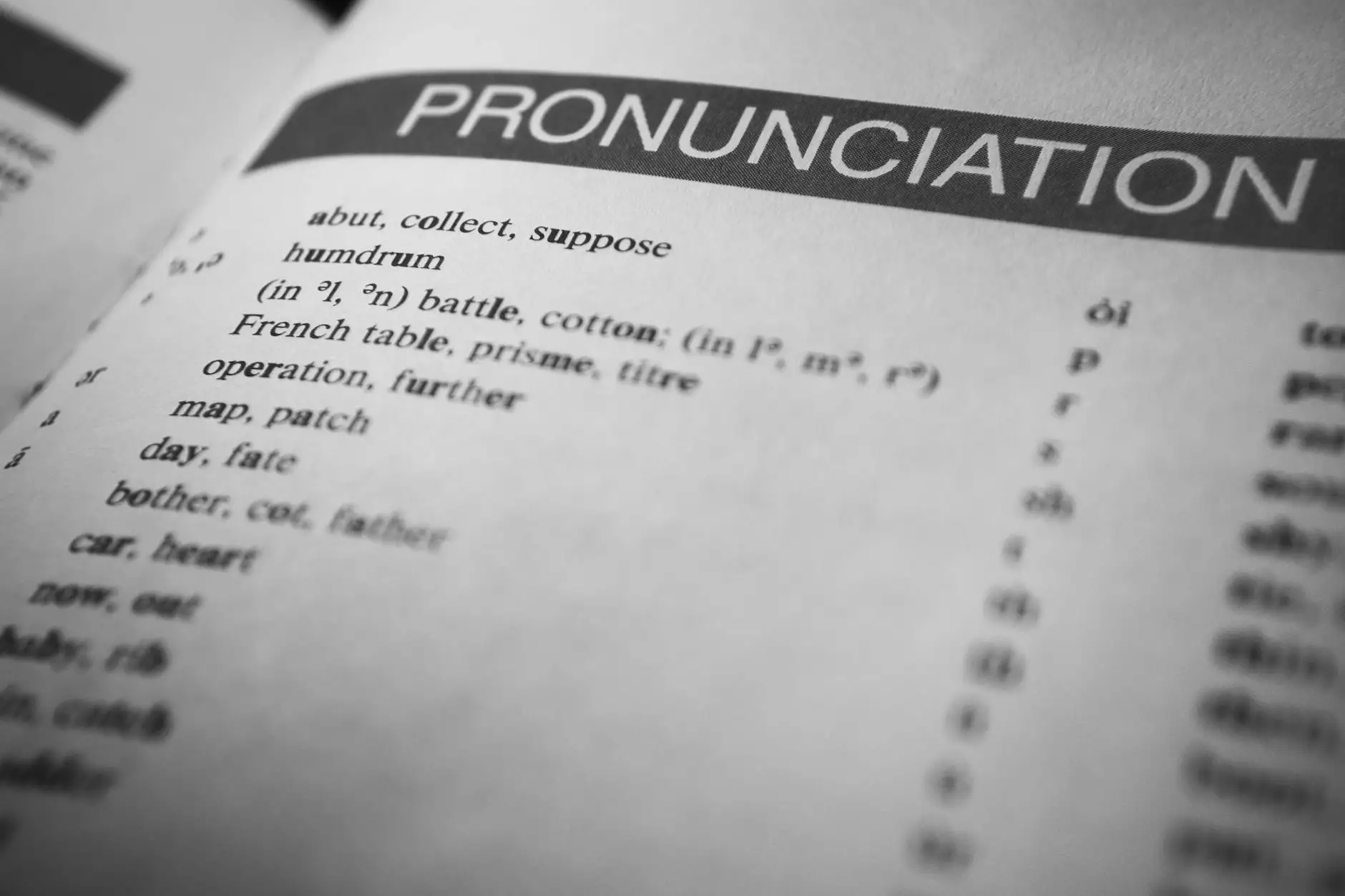580 – Begin, Start, And Prepositions
English Grammar Lessons
Understanding the Usage of 'Begin,' 'Start,' and Prepositions
When it comes to the English language, proper usage of words is essential in conveying accurate meaning. In this comprehensive guide by NJCLT, we will delve into the nuances of the words 'begin,' 'start,' and how they interact with prepositions. Understanding these subtleties will not only improve your grammar but also enhance your overall communication skills.
The Difference Between 'Begin' and 'Start'
Although 'begin' and 'start' are often used interchangeably, there is a slight difference in their meanings. 'Begin' emphasizes the initiation of an action, and it signifies the starting point or the commencement. On the other hand, 'start' simply denotes the beginning of something without any particular emphasis on its initiation. Understanding this distinction will help you choose the most appropriate word in different contexts.
Prepositions That Match with 'Begin' and 'Start'
When using 'begin' or 'start' in a sentence, it is crucial to employ the correct preposition to convey your intended meaning effectively. Here are some commonly used prepositions with 'begin' and 'start':
- Begin with: This preposition is used when you want to specify what the action is starting with. For example, "I began my day with a cup of coffee."
- Start by: When you wish to highlight how something is starting, you can use 'start' with this preposition. For instance, "She started by introducing herself."
- Begin/Start at: This preposition implies that the action is commencing from a particular point. For example, "Let's begin/start at Chapter 1."
- Begin/Start on: When referring to a specific date or time, 'begin/start' is often paired with this preposition. For instance, "The conference will begin/start on Monday."
Common Collocations with 'Begin' and 'Start'
'Begin' and 'start' are often used in combination with certain nouns, creating collocations that are widely accepted in the English language. Becoming familiar with these common combinations will allow you to express your thoughts more precisely. Here are some examples of collocations:
- Begin/Start a project/task: Using either of these words with 'a project' or 'a task' indicates the initiation of work. For instance, "Let's start a new project next week."
- Begin/Start a journey: When referring to the commencement of a trip, you can use 'begin' or 'start' interchangeably. For example, "We will begin/start our journey at dawn."
- Begin/Start an event/meeting: These words are commonly used to indicate the inaugural point of an event or meeting. For instance, "The event will begin/start promptly at 8 PM."
- Begin/Start a conversation/discussion: When initiating a conversation or discussion, 'begin' and 'start' are often used. For example, "Let's begin/start the discussion with the first item on the agenda."
Examples of Proper Usage
To provide further clarity on the usage of 'begin,' 'start,' and prepositions, here are some illustrative examples:
- I will begin my presentation with a brief introduction.
- She started her day by going for a jog.
- Please begin the exam when instructed to do so.
- The concert will start at 7 PM sharp.
- Let's start the meeting on a positive note.
- They begin their vacation on Friday.
- We should start the project by conducting thorough research.
- He begins every conversation with a joke.
Conclusion
Mastering the correct usage of 'begin,' 'start,' and prepositions is essential for effective communication. With the help of this detailed guide by NJCLT, you should now have a better understanding of how these words work together. Remember, using the appropriate word in various contexts will not only enhance your language skills but also ensure that your message is conveyed accurately.










